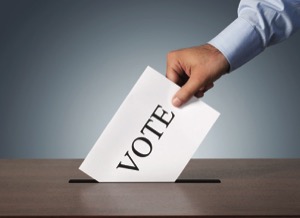
Among the 31 state and local measures that voters will weigh in on in this election are two important city reforms designed to make sure that critical decisions about our elected leaders and major policy changes are aligned with general elections when most voters traditionally participate.
Our current city elections are run differently than how we choose our state and federal officials, and as a result our city council, mayor and city attorney may be chosen outright in the primary by a small fraction of voters long before we get our general election ballots for November. Indeed, I’m an example of this. With Councilmember Todd Gloria facing term-limits, I was elected outright in this year’s June election to represent District 3, and now my own race won’t be on ballots arriving this week. I look forward to serving, but I believe strongly that protecting the voice of the voters I now represent is more important than special rules to save me from facing them. Quite simply, our democracy is strongest when the most people participate, and your elected representatives are better able to serve you when we’re chosen by you – all of you.
You’d be amazed by the number of people I see out in the community who offer me congratulations for a strong primary showing and tell me how excited they are for my election in November. They’re puzzled when I explain the election is over and decided already. The widespread confusion has been a reality check for me. Most people think of our general elections as just that – the time when we get to vote on final decisions. They consider primaries to be the way to narrow the field, the same as in all our partisan races. That’s why many independent or “decline to state” voters skip primaries and wait until November, but because of these special rules, too often they never get that second chance. That’s why we need Measure K.
This isn’t the first time we have asked voters to consider improving on our electoral system. A generation ago, city voters enacted district elections which helped strengthen the diversity of councilmembers and ensure broader community representation. Then city voters moved our local elections from odd year stand-alone elections to consolidate with our state and federal elections. Not only did this save the city money, but much like Measures K and L would do today, it helped make sure our decisions are made when the most people are voting on our future. Now we can take the next step to make our democratic process stronger.
Measure L would continue this effort to trust voters by aligning our city’s rules with existing state rules by putting all city and state ballot measures on the same November ballot. The length of your ballot this year is daunting, but the high stakes – fiscal decisions with multi-billion dollar consequences, education, criminal justice reform, drug policy, health care, and more – are a reminder of how important it is that we do everything we can to make sure the most voters have a say.
Measures K and L put voters in charge. These measures were introduced by Alliance San Diego, a nonpartisan community organization, and the voting rights-focused Independent Voter Project. This is the right time to improve on our election processes to make sure our democracy works better for everyone. I hope you will join Councilmember Todd Gloria, Council President Sherri Lightner and me in supporting Measures K and L today.
For more information, please visit www.YesonKandL.org.
Councilmember-elect Chris Ward will begin a four-year term to represent the Third District neighborhoods on the San Diego City Council in December 2016. He may be reached through his Web site at www.voteforward.com











